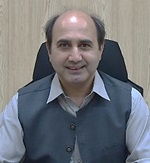Pakistan with a rich history and a complex political landscape has been plagued by recurring episodes of political instability since its inception. Pakistan emerged as a separate nation in 1947 following the partition of British India. Its early years were marked by political turmoil with the death Quaid-i-Azam in 1948 and assassination of country’s first prime minister Liaquat Ali Khan in 1951.
The nascent state struggled to establish stable political institutions, and this vulnerability laid the groundwork for military intervention in politics. The country has witnessed multiple periods of military rule, each with its own consequences for political stability.
The first significant military ruler was General Ayub Khan, who seized power in 1958 through a coup. His rule, often referred to as the ‘decade of development’ brought economic growth but stifled political freedoms, leading to discontent and eventually his downfall in 1969.
The General Yaha Khan era, as short as 3 years, was a major turning point in Pakistani foreign and military affairs and in its internal affairs.
After a brief political government in the aftermath of General Elections and secession of East Pakistan in 1971, General Zia-ul-Haq took power in a coup in 1977 and ruled Pakistan for 11 years. His regime was marked by a strong alliance with the United States during the Cold War and the implementation of Islamic laws.
However, his rule further weakened civilian institutions and created a legacy of political instability that lingered long after his death.
Another military ruler, General Pervez Musharraf, took control in 1999 and remained in power until 2008. His tenure was characterized by his partnership with the US in the war on terror following the September 11 attacks.
While he introduced some economic reforms, his rule also saw the erosion of democratic institutions and increased military involvement in civilian affairs. Even during periods of civilian rule, the military has played a significant role behind the scenes.
Civilian governments have often been overshadowed by the powerful military establishment, which has exercised control over key aspects of the state, including foreign policy and security matters.
The military’s interference in civilian affairs has led to the dismissal of elected governments and the manipulation of elections, contributing to political instability.
Political instability and military rule have had adverse economic consequences for Pakistan. While military rulers have often touted economic development, their focus on short-term gains has come at the expense of long-term stability.
The lack of political continuity and frequent policy changes have deterred foreign investment and hindered economic growth.
Additionally, the military’s involvement in economic ventures, such as running commercial enterprises through military-owned entities, has created an uneven playing field for private businesses, further deterring economic progress.
Political instability and military rule have contributed to Pakistan’s struggles with poverty, inflation, and unemployment.
The influence of political instability and military rule extends beyond the realm of politics and economics, affecting Pakistan’s society and culture.
The suppression of political dissent, restrictions on the media, and curbs on freedom of expression have created an atmosphere of fear and censorship.
These factors have stifled the growth of a vibrant civil society and a free press, which are essential for a healthy democracy. Furthermore, Pakistan’s education system has been heavily influenced by the military, with an emphasis on a nationalist and security-oriented curriculum.
This has led to a limited understanding of critical thinking, history, and social issues, hindering the development of an informed and engaged citizenry.
The 2018 and the recent 2024 General Elections raised serious concerns about military interference, and allegations of the military’s role in engineering political alliances and manipulating the electoral process.
The military’s involvement in country’s politics has been criticized for human rights abuses, including enforced disappearances, extrajudicial killings. The future prospects for political stability in Pakistan depend on several factors, including the military’s willingness to relinquish its hold on power and the strength of democratic institutions.
Civil society and the media’s role in holding the government and military accountable will also be critical in shaping Pakistan’s political landscape.
Pakistan’s political stability is crucial for its future prosperity and the well-being of its people. The complex relationship between civilian government and military is a key factor in this struggle. Recent developments, such as legal actions against military officials, highlight the ongoing struggle for supremacy. To achieve political stability, Pakistan must strengthen democratic institutions, including electoral reforms, an independent judiciary, and a robust parliament.
This will reduce the military’s role in politics and ensure lasting stability. The military’s involvement in politics, whether through direct rule or qausi-influence, is closely tied to political instability.
Addressing this complex relationship, strengthening democratic processes, and upholding human rights are essential for lasting stability. The international community must support democratic development in Pakistan since a stable and democratic Pakistan is vital for regional and international stability.
The writer is Ph.D in Political Science, and visiting faculty at QAU Islamabad. His area of specialization is political development and social change. He can be reached at zafarkhansafdar@yahoo.com and tweet@zafarkhansafdar.

